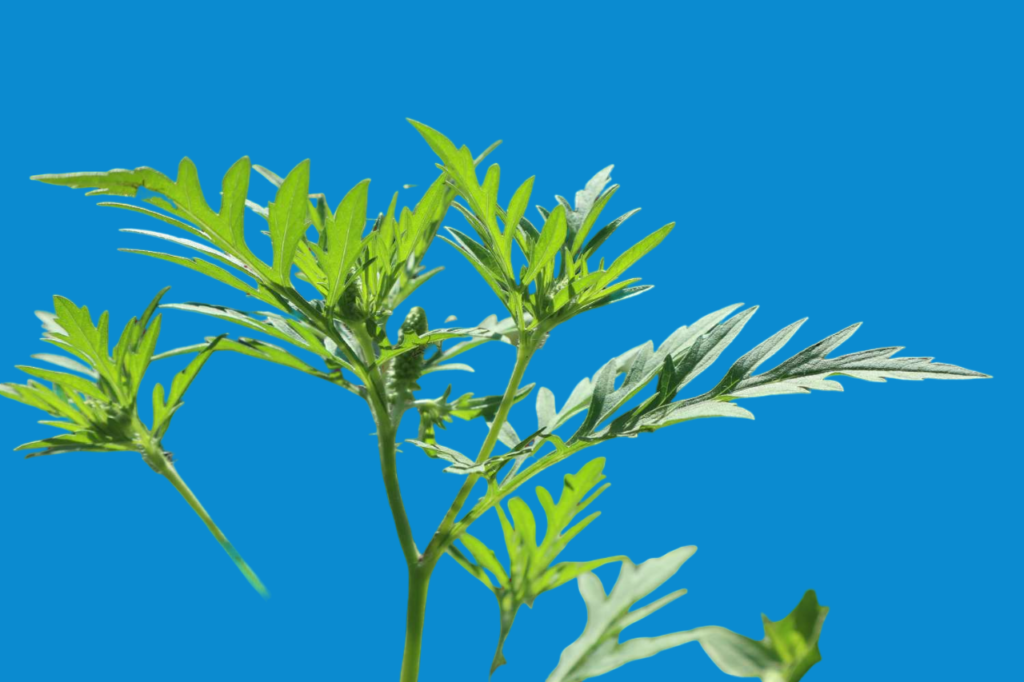
When I first heard about wormwood tea as a remedy for parasites, I was intrigued. I’ve always been drawn to natural remedies, especially those with a rich history of use. The idea of using this herb for intestinal parasites piqued my interest, and I wanted to see for myself whether it could live up to the hype. After doing my research, trying it, and hearing others’ stories, here’s what I found out.
What is Wormwood Tea, and Why is It Linked to Parasites?
Wormwood, also known as Artemisia absinthium, has been used for centuries in traditional medicine, particularly for combating intestinal parasites. A friend of mine first mentioned it to me after they had an impressive experience using wormwood tea to tackle digestive issues. I decided to try it for myself, and I have to admit, the bitter flavor caught me off guard at first. This tea isn’t one for casual sipping; it’s robust and bitter, which makes you feel like it’s really doing something powerful inside.
The bitterness of wormwood is believed to stimulate digestive processes and help flush out parasites. But does it really work for eliminating these pesky invaders? Let’s dive deeper.
How Does Wormwood Tea Work Against Parasites?
The Active Compounds in Wormwood
The reason wormwood is considered effective against parasites is due to its active compounds, including thujone and artemisinin. Thujone is known for its antimicrobial properties, which can help eliminate parasites and other harmful organisms. I remember coming across the historical use of wormwood in ancient Egypt for cleansing purposes. It’s incredible how these traditional uses of herbs persist in modern times.
It’s important to be mindful of dosage since thujone, in high quantities, can be neurotoxic. When I tried wormwood tea, I made sure to keep my intake moderate. The key is to balance the potential benefits with an awareness of how potent this herb can be.
A Friend’s Journey with Wormwood for Parasite Relief
A friend of mine who had spent time traveling in Southeast Asia came back with persistent digestive troubles. Conventional treatments didn’t seem to help, so they turned to wormwood tea as a last resort. After just a week of regular use, they noticed an improvement—less bloating and more energy. Their experience convinced me that this herb deserved a closer look.
How to Prepare Wormwood Tea for Parasite Cleansing
Step-by-Step Guide
If you’re interested in trying wormwood tea, here’s how I prepare mine:
- Buy high-quality dried wormwood: I always recommend sourcing from reputable suppliers to ensure you’re getting a pure, potent product.
- Start with a small amount: A half-teaspoon of dried wormwood in hot water is a good starting point. This herb is strong, so a little goes a long way.
- Steep for 10-15 minutes: The longer you steep, the more bitter it will become, but the stronger the effect.
- Drink in moderation: I recommend drinking one cup a day for a week, then taking a break.
A Note on the Taste
I won’t sugarcoat it—wormwood tea is bitter. For someone like me, who enjoys herbal flavors, it’s bearable. But if you’re new to bitter herbs, it might be a shock to your system. Adding honey or lemon can help, though I prefer mine without. It’s okay to sweeten it if it makes the experience more enjoyable.
Wormwood Tea vs. Other Natural Parasite Treatments
How Does Wormwood Compare to Other Cleanses?
While wormwood is a powerful tool against parasites, it’s often used in combination with other herbal treatments. For example, black walnut hull, cloves, and garlic are also known for their parasite-fighting properties. I’ve tried these in conjunction with wormwood, and they seem to work well together.
- Wormwood: Targets adult parasites.
- Black walnut hull: Works on larval stages of parasites.
- Cloves: Effective against parasite eggs.
Together, these herbs form a comprehensive cleansing strategy. However, if I were to choose only one, it would still be wormwood. Its rich history and powerful effects make it my go-to for parasite cleansing.
Potential Side Effects
It’s important to note that while wormwood is effective, it can also have side effects, especially at high doses. Personally, I haven’t experienced any major issues, but I know people who have felt nausea or dizziness. I always recommend starting small and consulting a healthcare provider, particularly if you have any underlying health conditions.
Benefits of Wormwood Tea Beyond Parasite Cleansing
Digestive Health
One of the reasons I keep coming back to wormwood is because it helps with digestive issues. Drinking the tea before meals stimulates my appetite and reduces bloating, especially after heavy meals. If you’re prone to slow digestion or frequently feel bloated, this herb can be a helpful addition to your routine.
Detoxification Properties
Beyond parasites, wormwood is known for its detox properties. It helps your liver process and eliminate toxins more efficiently. I’m a big believer in supporting liver health, and this is one of the reasons I’ve continued using wormwood. It feels like a gentle, yet effective, way to assist my body’s natural detoxification processes.
Conclusion: Is Wormwood Tea Right for You?
In my experience, wormwood tea has proven to be a powerful ally in the fight against parasites. It’s not the most pleasant tasting tea, but the potential benefits, particularly for digestive health and detox, make it worth considering. If you’re looking for a natural solution to parasites, wormwood might be the right choice for you.
However, as with all herbal remedies, I recommend starting slow and listening to your body. Consult a healthcare provider if you’re unsure, and always remember to use these powerful herbs responsibly.









